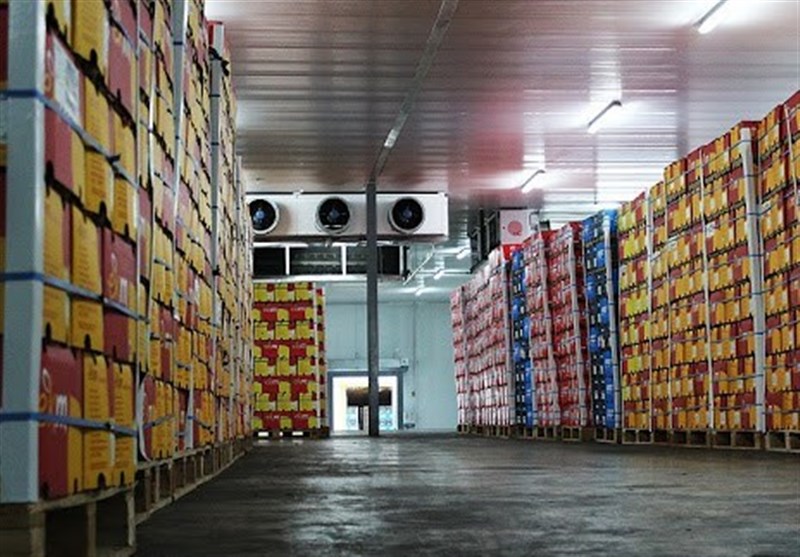The Importance of Refrigerated Transportation in Fruit Exports
In the ever-evolving landscape of global trade, the export of fresh fruits stands out as a vital sector, contributing significantly to economies worldwide. One of the most critical components that ensure the success of this industry is refrigerated transportation. This method of transport not only preserves the quality and freshness of fruits but also extends their shelf life, making them more appealing to consumers and ensuring that exporters can meet the demands of international markets.
The significance of refrigerated transportation in fruit exports cannot be overstated. It serves as a bridge between producers and consumers, allowing fruits to travel long distances without compromising their quality. This is particularly crucial in regions where fresh produce is grown but may not be consumed locally. Countries like Iran, with its rich agricultural landscape, rely heavily on companies such as Hamrah Tejarat Maham Company to facilitate the export of their fruits to international markets. By utilizing advanced refrigerated transport solutions, these companies can ensure that their products reach consumers in optimal condition.
The journey of fresh fruits from orchards to markets is fraught with challenges. Temperature fluctuations during transit can lead to spoilage, loss of flavor, and nutritional degradation. This is where refrigerated transportation comes into play. By maintaining a consistent temperature throughout the shipping process, fruits can retain their freshness and quality. For instance, companies like Al Alam Al Raqmi L.L.C in the United Arab Emirates have recognized the importance of this technology. They employ state-of-the-art refrigerated containers that provide the necessary climate control to protect delicate fruits during their journey.
Moreover, the impact of temperature control on fruit export quality is profound. Different fruits have varying temperature requirements; for example, berries need to be kept at cooler temperatures than bananas. Understanding these nuances is essential for exporters to ensure that their products arrive in the best possible condition. The logistics of refrigerated transportation require meticulous planning and execution, from the moment fruits are harvested to when they reach the retailer’s shelf.
Best practices for refrigerated transportation in the fruit export industry involve several key strategies. First and foremost, proper packaging is essential. Fruits should be packed in materials that allow for airflow while providing protection from physical damage. Additionally, using insulated containers can help maintain the desired temperature during transit. Regular monitoring of temperature and humidity levels is also crucial, as even minor deviations can lead to significant losses.
As the demand for fresh produce continues to rise globally, the need for efficient refrigerated transportation solutions becomes even more pressing. Innovations in this field are transforming how fruits are exported. For instance, the integration of IoT technology allows for real-time monitoring of conditions within refrigerated containers. This not only helps in maintaining optimal temperatures but also provides valuable data that can be used to improve future shipments.
Navigating the challenges of refrigerated transportation for fruit exports requires a collaborative approach. Exporters must work closely with logistics providers to ensure that every aspect of the transportation process is optimized. This includes selecting the right mode of transport, whether it be air, sea, or land, and ensuring that all parties involved are trained in handling perishable goods.
The role of refrigerated transportation in the global fruit trade is essential for several reasons. Firstly, it enables exporters to reach distant markets that would otherwise be inaccessible due to the perishability of fresh produce. Secondly, it allows for the introduction of a wider variety of fruits to consumers, enhancing their choices and promoting healthy eating habits. Lastly, it supports local economies by providing farmers with access to international markets, thereby increasing their income and sustainability.
In conclusion, the importance of refrigerated transportation in fruit exports cannot be underestimated. Companies like Hamrah Tejarat Maham in Iran and Al Alam Al Raqmi L.L.C in the UAE exemplify how effective logistics and innovative technologies can transform the fruit export industry. By prioritizing temperature control and best practices in refrigerated transport, these companies not only enhance the quality of their products but also contribute to the overall growth of the global fruit trade. As we look to the future, continued investment in refrigerated transportation will be crucial for meeting the demands of consumers and ensuring that fresh fruits remain a staple in diets around the world. As we delve deeper into the intricacies of refrigerated transportation, it’s essential to recognize the ripple effects this sector has on sustainability and environmental practices. With consumers increasingly aware of their carbon footprint, companies are under pressure to adopt greener methods. Innovations in refrigerated transport, such as energy-efficient cooling systems and eco-friendly refrigerants, are paving the way for a more sustainable approach to fruit exports.

Take, for instance, the rise of solar-powered refrigerated containers. These advancements not only reduce reliance on fossil fuels but also help cut down operational costs in the long run. In my experience, when companies embrace these technologies, they not only appeal to environmentally conscious consumers but also enhance their brand reputation in a competitive market.
Additionally, the logistics of transporting fresh fruits extend beyond just temperature control. It’s about creating a seamless supply chain that encompasses everything from harvest to delivery. This means investing in training for workers who handle these perishable goods. Ensuring that everyone involved understands the importance of maintaining optimal conditions can make a world of difference. After all, a single mishap in handling can lead to significant losses, both financially and in terms of consumer trust.
Moreover, the role of technology in streamlining operations cannot be overlooked. With the advent of blockchain technology, for example, transparency in the supply chain has reached new heights. Consumers can now trace the journey of their fruits, gaining insights into where they come from and how they were handled. This not only builds trust but also encourages producers to adhere to higher standards of quality and safety.
The future of refrigerated transportation in fruit exports is also likely to see an increase in collaboration across borders. Countries that specialize in different types of fruits can partner to create a more robust export network. Imagine a scenario where tropical fruits from Southeast Asia are shipped alongside berries from North America, all while maintaining the highest quality standards. Such collaborations could not only diversify offerings in various markets but also enhance the resilience of the global supply chain.
In essence, the evolution of refrigerated transportation is not just about keeping fruits fresh; it’s about fostering a sustainable, efficient, and transparent global trade system. As we move forward, it’s crucial for stakeholders—exporters, logistics providers, and consumers alike—to advocate for and invest in practices that support this vision. By doing so, we can ensure that fresh fruits remain not only a dietary staple but also a symbol of innovation and responsibility in global trade.
So, what does this mean for the average consumer? It means that the next time you bite into a juicy piece of fruit, you can appreciate the intricate journey it took to reach your table. From the orchards to the refrigerated trucks, and finally to your local market, each step is a testament to the dedication of those involved in the fruit export industry. And as consumers, we have the power to support these efforts by choosing products that prioritize quality and sustainability. As we explore the broader implications of refrigerated transportation in the fruit export sector, it’s important to consider how these practices impact not just the economy, but also our health and the environment. The connection between fresh produce and consumer well-being is undeniable. When fruits are transported efficiently and kept at the right temperatures, they arrive at markets bursting with flavor and nutrients, ready to nourish us.
Let’s take a moment to reflect on the role of consumer choices in this ecosystem. When we opt for fresh, seasonal fruits, we’re not just making a healthy choice for ourselves; we’re also supporting local farmers and exporters who are committed to quality. It’s a win-win situation! In my experience, when consumers are educated about the journey their food takes, they tend to appreciate it more, leading to a greater willingness to pay a premium for high-quality, sustainably sourced produce.
Furthermore, the rise of online grocery shopping has transformed how we access fresh fruits. With just a few clicks, we can have a variety of fruits delivered right to our doorstep. This convenience, however, comes with its own set of challenges. Ensuring that these fruits remain fresh during delivery requires robust refrigerated logistics. Companies that can master this aspect of their operations will likely thrive in the competitive market.
In addition, let’s not overlook the role of social media in shaping consumer preferences. With platforms like Instagram and TikTok, visually appealing fruit displays can go viral, influencing buying habits and trends. This phenomenon puts even more pressure on exporters to deliver not just fresh fruits, but also aesthetically pleasing ones. The demand for organic and exotic fruits is on the rise, and refrigerated transportation is key to meeting these expectations.
As we look ahead, it’s clear that the landscape of refrigerated transportation will continue to evolve. The integration of artificial intelligence and machine learning into logistics could revolutionize how we manage supply chains. Imagine predictive algorithms that can forecast demand and adjust shipping routes in real-time to minimize waste and ensure that fruits are delivered at peak freshness.
Additionally, the importance of consumer education cannot be overstated. Initiatives that inform the public about the benefits of supporting companies that prioritize refrigerated transport can lead to more conscious buying decisions. It’s all about creating a culture that values quality and sustainability over convenience.
In conclusion, the journey of fresh fruits from farm to table is a complex tapestry woven with innovation, sustainability, and consumer awareness. As stakeholders in this process, we all have a role to play. Whether you’re a farmer, an exporter, a logistics provider, or simply a consumer, understanding the significance of refrigerated transportation can lead to better choices that benefit everyone involved. So, the next time you enjoy a fresh fruit, take a moment to appreciate the intricate systems that made it possible. It’s more than just a snack; it’s a testament to our interconnected world and the ongoing efforts to make it a better place for all.




